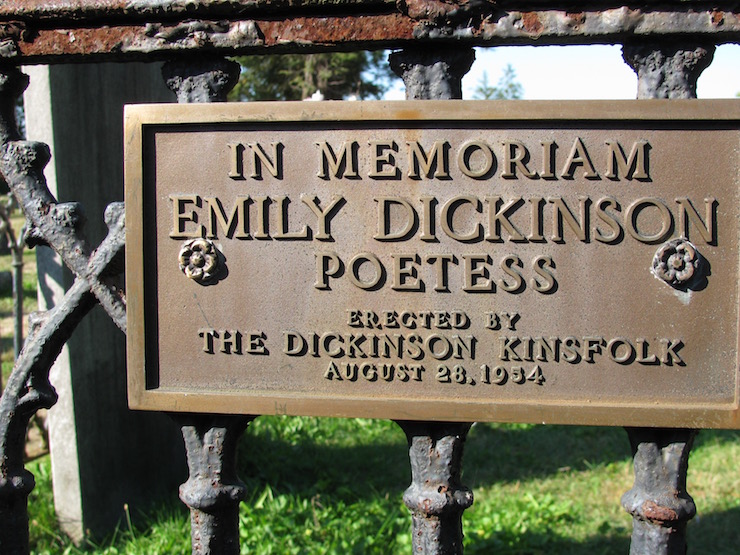< Return to Emily Dickinson Poems
XIX. By the Sea
BY THE SEA.
I started early, took my dog,
And visited the sea;
The mermaids in the basement
Came out to look at me,
And frigates in the upper floor
Extended hempen hands,
Presuming me to be a mouse
Aground, upon the sands.
But no man moved me till the tide
Went past my simple shoe,
And past my apron and my belt,
And past my bodice too,
And made as he would eat me up
As wholly as a dew
Upon a dandelion’s sleeve —
And then I started too.
And he — he followed close behind;
I felt his silver heel
Upon my ankle, — then my shoes
Would overflow with pearl.
Until we met the solid town,
No man he seemed to know;
And bowing with a mighty look
At me, the sea withdrew.
-Emily Dickinson
Enjoy Artistic Representations of “By the Sea” by Emily Dickinson
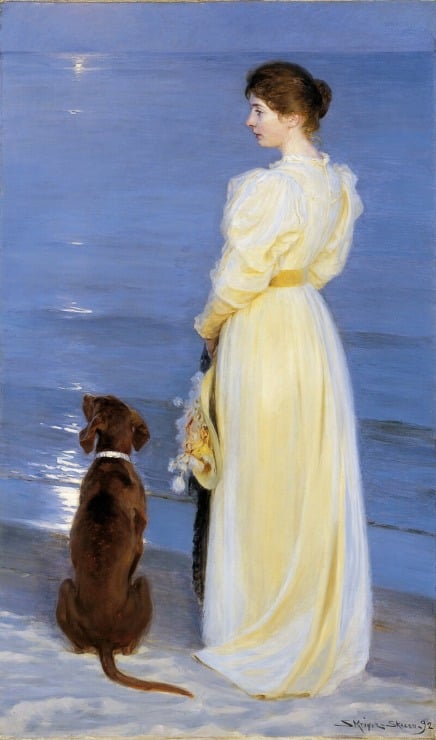
Summer evening at Skagen by P.S. Krøyer, 1892.
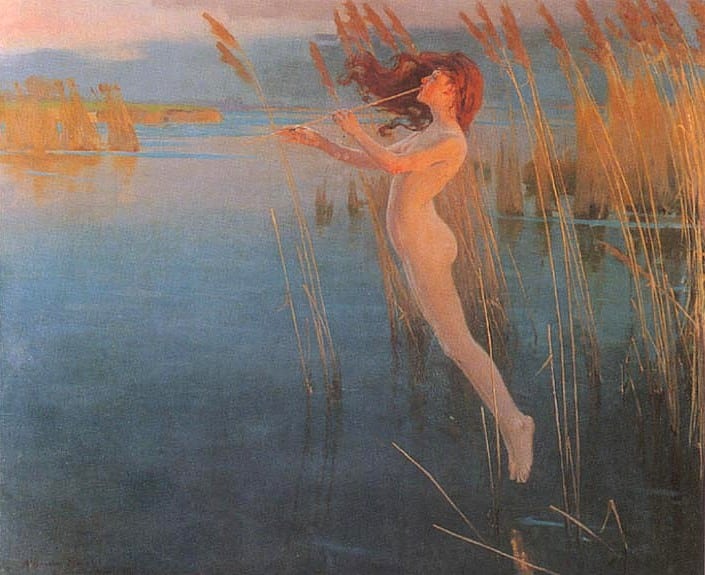
The Long Cry of the Reeds at Even by Alexander Mann, 1896.
Listen to these Readings of “By the Sea”
Listen to these Musical Interpretations of “By the Sea” by Emily Dickinson
About Emily Dickinson
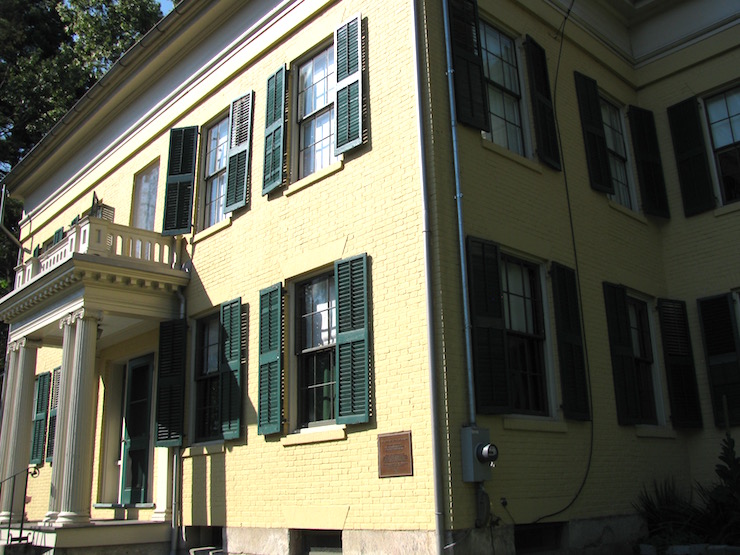
Emily Dickinson estate in Amherst Massachusetts
Emily Dickinson was born in Amherst, MA, in 1830, the daughter of state and federal politician Edward Dickinson. A prolific poet, Dickinson was known to draft poems on the backs of envelopes and chocolate wrappers. Nearly 1800 of her poems were discovered by her family following her death, many in 40 handbound volumes she had sewn together, written in her own hand with her famously unorthodox punctuation.
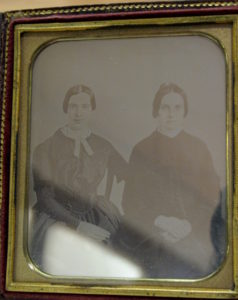
Emily Dickinson & Susan Gilbert
The enigmatic poet is remembered as a recluse, rarely leaving the Dickinson estate. While she did receive callers at her home, conversations were often held from opposite sides of a closed door.
She lived with her sister, Lavinia, while her brother Austin and his wife, Susan Gilbert, lived down a narrow path on the property. Her writing reflects profound loneliness as well as a deep capacity for love and affection, much of which is believed to have been shared with Gilbert.
Her first collection of poems, Poems by Emily Dickinson, was published four years after her death, with Poems: Second Series and Poems: Third Series following in the next several years.
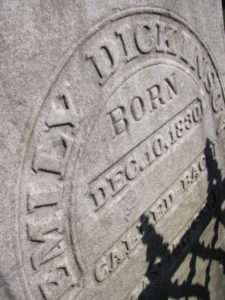
“Called Back”
Like Walt Whitman (who she reportedly never read), she is considered one of the most influential poets in the emergence of a distinctly American poetic voice.
She was born on December 10, 1830, and today visitors to Emily Dickinson’s grave can witness a lasting image of her perspective on life. The etching on her stone marking the date of her death—May 15, 1886—bears the words “Called Back.”
< Return to Emily Dickinson Poems
Get Every Day Poems, free…
